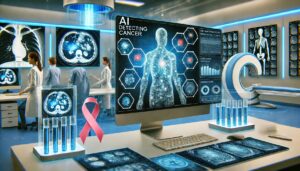Introduction
In today’s rapidly evolving technological landscape, wearable devices have emerged as a groundbreaking innovation that is transforming personal health monitoring. These smart gadgets, ranging from fitness trackers to smartwatches and biosensors, are empowering individuals to take proactive control over their health and well-being. With the integration of advanced sensors, real-time data analytics, and artificial intelligence (AI), wearable technology is reshaping the future of healthcare.
The Rise of Wearable Health Technology
The adoption of wearable health devices has surged in recent years due to their ability to continuously monitor vital signs and provide actionable insights. These devices are equipped with heart rate monitors, sleep trackers, blood oxygen sensors, and electrocardiograms (ECG) that allow users to track their health metrics effortlessly.
Key Benefits of Wearable Devices in Health Monitoring
Mental Health Support: Wearables can track stress levels, monitor sleep patterns, and provide mindfulness reminders to promote mental well-being.
Real-Time Data Collection: Wearable devices offer continuous and accurate tracking of vital health parameters, enabling users to make informed decisions.
Early Detection of Health Issues: Advanced algorithms can detect irregularities such as arrhythmias, sleep apnea, and abnormal blood pressure patterns.
Enhanced Fitness Tracking: From counting steps to measuring calorie burn and monitoring workout intensity, fitness trackers help users achieve their fitness goals.
Chronic Disease Management: Devices like glucose monitors and smart insulin pens assist diabetic patients in managing blood sugar levels effectively.
The Role of AI and Big Data in Wearable Health Tech
Artificial intelligence and big data analytics play a pivotal role in enhancing the functionality of wearable health devices. By analyzing vast amounts of data collected from users, AI algorithms can identify patterns, predict potential health risks, and offer personalized recommendations. For instance:
- Personalized health coaching is made possible through AI-driven insights tailored to individual needs.
- Machine learning algorithms can detect abnormal heart rhythms and alert users to seek medical attention.
- Predictive analytics can forecast potential health issues based on historical data and lifestyle habits.
Popular Wearable Devices in the Market
- Apple Watch Series: Tracks heart rate, ECG, blood oxygen levels, and provides fitness tracking features.
- Fitbit Sense: Offers stress management tools, sleep tracking, and heart rate variability monitoring.
- Garmin Forerunner: Ideal for athletes and runners with advanced GPS tracking and performance metrics.
- Oura Ring: Monitors sleep quality, heart rate, and body temperature.
- WHOOP Strap: Focuses on recovery and performance optimization for athletes.
Impact on Healthcare Industry
The integration of wearable technology into the healthcare system is revolutionizing patient care and medical diagnostics. Some significant impacts include:
- Clinical Trials and Research: Wearables provide real-time data for clinical trials, improving research accuracy and efficiency.
- Remote Patient Monitoring (RPM): Healthcare providers can monitor patients with chronic conditions from a distance, reducing hospital visits.
- Telemedicine Support: Wearable data can be shared with doctors during virtual consultations for accurate diagnosis and treatment.
Challenges and Limitations
The Future of Wearable Health Monitoring
The future of wearable health technology looks promising with innovations such as:
- Non-Invasive Glucose Monitoring: Devices capable of measuring blood sugar levels without the need for finger pricks.
- Wearable ECG Patches: Advanced patches for continuous heart monitoring.
- Smart Clothing and Textiles: Embedded sensors in clothing to monitor body temperature and hydration levels.
- Integration with Augmented Reality (AR): Visualizing health data through AR interfaces.
Conclusion
Wearable devices are undeniably transforming personal health monitoring by providing real-time data, enhancing fitness tracking, and improving chronic disease management. With advancements in AI, big data, and sensor technology, the future holds immense potential for further innovation in this field. However, addressing privacy concerns and ensuring data accuracy will be critical for widespread adoption and trust in these devices.




